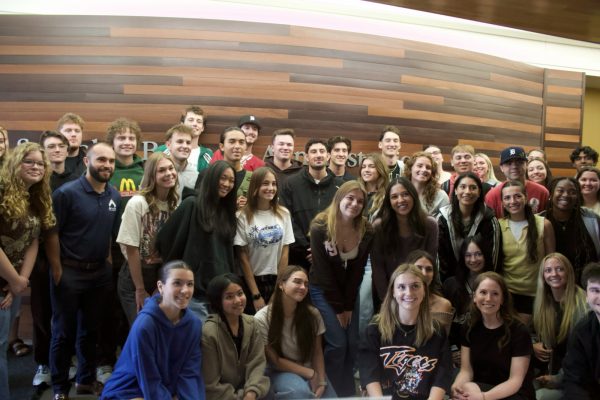Discussing the UAW strike
United Automobiles Workers (UAW) have long been protesting General Motors (GM) over equal pay, fair benefits and job security. In fact, the UAW workers employed by GM have gone on strike 21 times since 1994. The earliest strike dates back to 1936.
As of Sept. 18, 2019, the UAW is on strike again.
This time, however, things are different than before because of seemingly stronger feelings of the strikers toward GM after the 2007 negotiation.
Adam, who chose to keep his full name anonymous, is one of around 49,000 UAW workers on strike in this year’s picket line.
“GM’s made billions in the last couple years,” Adam said. “When they were dying of bankruptcy, we gave them everything they wanted, and we just want our fair share back.”
“Aramark and GM, we’re just waiting for them to sign a contract,” said Carcier Guchribge, another UAW worker who chose to strike.
Daniel Clark, an associate professor of history at Oakland University and the author of “Disruptions in Detroit,” provided historical and current information about why the strike is occurring and how GM and the UAW have responded to their issues in the past.
“The contract between GM and the UAW has a lot to do with this immediate problem — an immediate strike and the conflict today,” Clark said. “That’s in part because in 2007, GM was at death’s door, it was on the brink of extinction, and it would go into bankruptcy a couple years later. But, the Great Recession probably officially began in late 2008, but in the auto industry, it was pretty well underway.”
Since this auto recession, terms had to be met on both sides. In terms of the UAW, the workers vouch that they have given the industry all they have asked of them.
Now, it seems the UAW is ready to be compensated for what the workers have done for GM.
“In the contracts that were signed in the 2007 strike, the UAW agreed to something that they never would have agreed to in the past,” Clark said. “That was a two-tier wage system to try to give GM some economic relief on wages. So, people who were already hired at GM continued to earn what they had earned, essentially, but new hires would earn about half as much.
“Also, the contract gave GM the right to hire temporary workers without a clear path for temporary workers to become full-time employees with benefits.”
After 2007, the UAW workers at GM are demanding they be compensated fairly and stray from the structure of the wages that came out of the strike 12 years ago.
The ending of this strike is still unclear to many media outlets, but it seems the UAW isn’t backing down any time soon.
“Until the membership approves the agreement, I was told we’re not going back to work,” said a UAW worker at GM’s plant in Bedford, Indiana, who asked to not be named, according to the Detroit Free Press.





